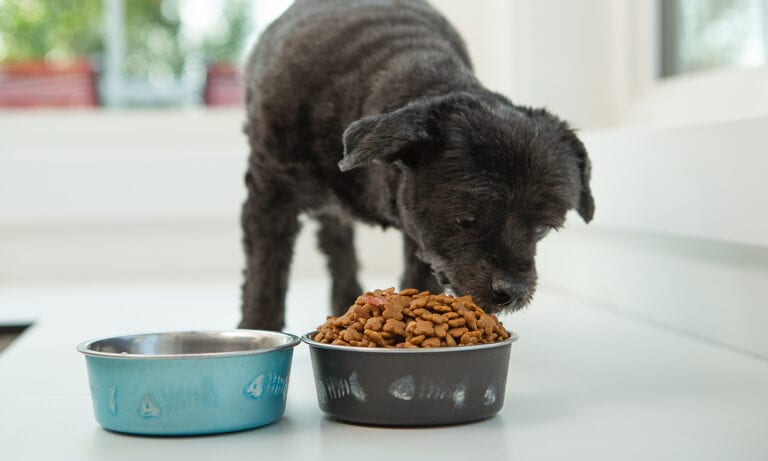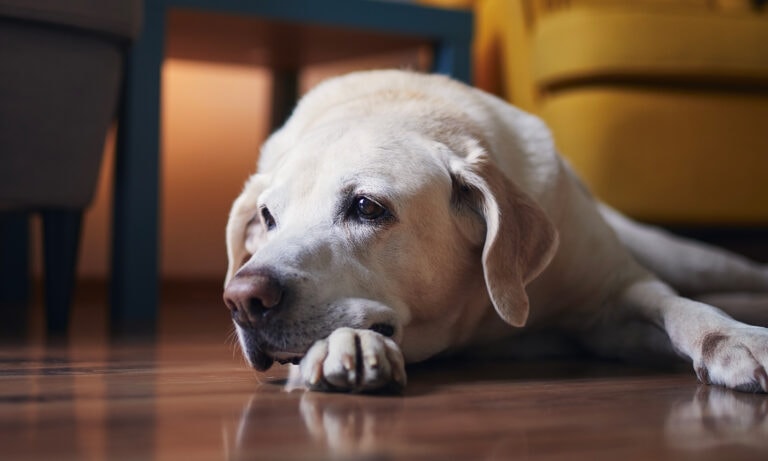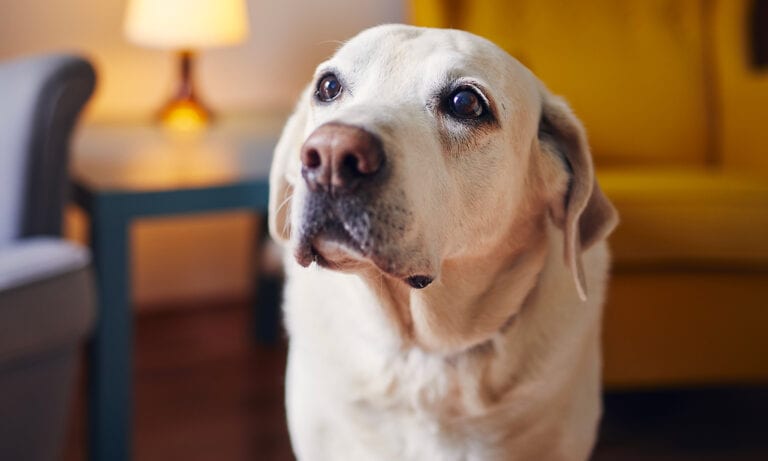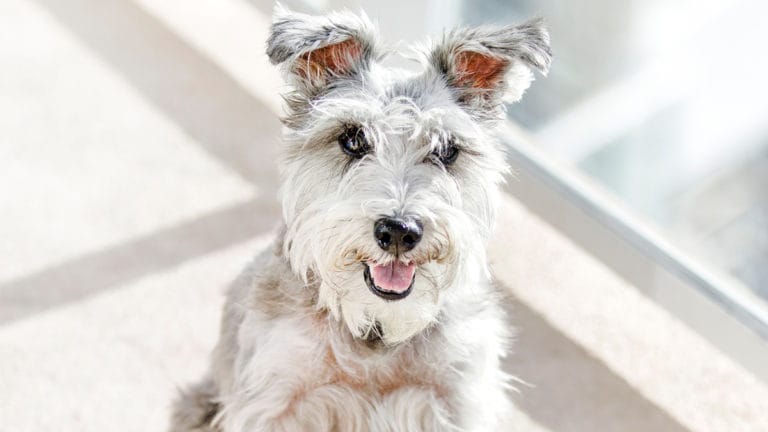1 Coughing Caused By Allergies
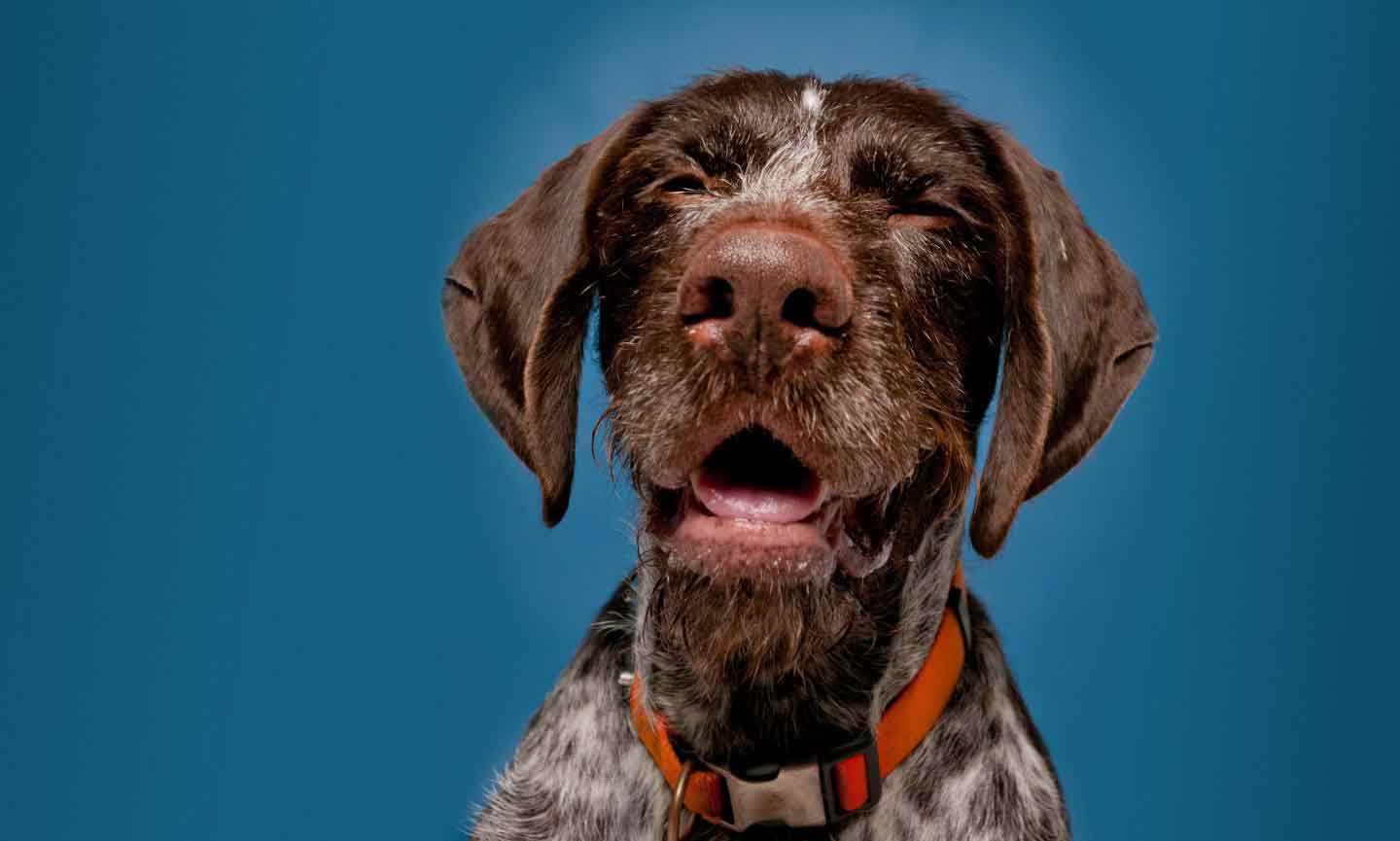
Some senior dogs will develop seasonal allergies that lead them to cough during certain parts of the year. Dogs with allergies tend to feel fine otherwise. They don’t have a fever or miss any meals—they may just cough on and off during the day, usually after they go outside.
Other Signs of Seasonal Allergies
In addition to coughing, a dog experiencing seasonal allergies may show these signs:
- Reverse sneezing: Unlike a regular sneeze, in which you expel air from your nose, a dog’s reverse sneeze involves sucking in air very quickly. At first it may seem like your dog is choking or having an asthma attack. Reverse sneezing is more common in toy and small breed dogs and brachycephalic dogs (flat-faced or “smush-faced”) with shortened muzzles like Bulldogs and Pugs. Think of it as a small spasm in your dog’s throat.
- Coughing up white mucus or clear fluid (in some cases).
When to See Your Vet
If your dog coughs only intermittently and has no other symptoms apart from reverse sneezing, seasonal allergies may be the culprit—and for mild cases like these, a vet visit may be unnecessary. You can generally stop their reverse sneezing yourself by gently and briefly covering your dog’s nostrils with your hand to interrupt the cycle of sucking in air.
However, if your dog coughs frequently or has a persistent cough at certain times of day or after certain activities, you need to look into the cause of the cough. It could be a sign of an underlying health problem and require the attention of a veterinarian. If seasonal allergies are to blame, your vet can prescribe treatment with antihistamines.
2 Infectious Coughs
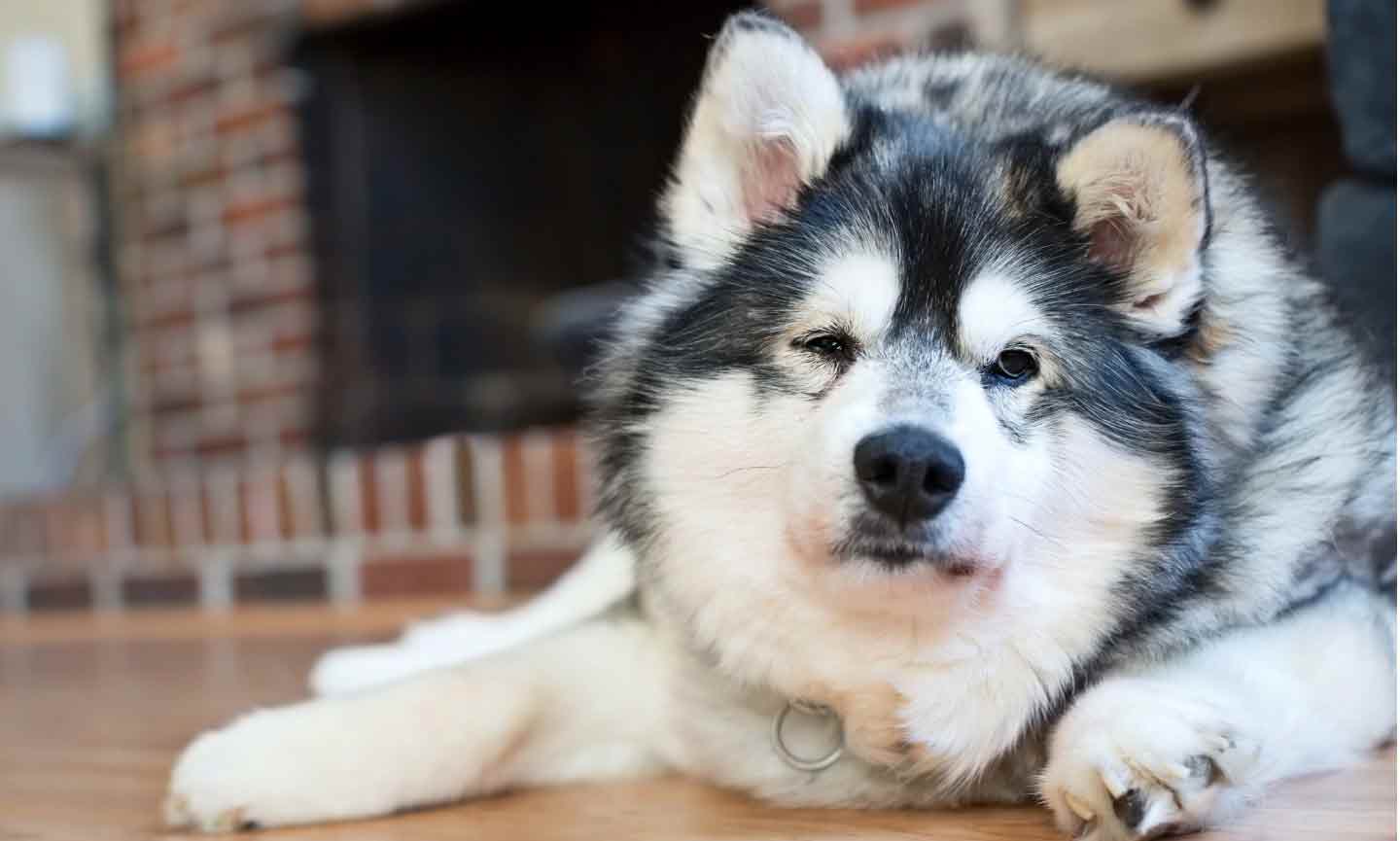
The most common infectious cause of coughing in dogs of all ages is a condition called kennel cough. It is also known as infectious tracheobronchitis, and is caused by a variety of infectious bacteria and viruses.
Kennel cough causes a dry, hacking cough that is often confused for gagging. It has also been described as a honking cough, and is common in young dogs, shelter dogs or dogs who spend a lot of time around other dogs at shows, parks or day care facilities.
The other common cause of infectious coughing in dogs is flu. There are two types of canine influenza now found in North America. As is typical of respiratory infections where disease is spread by coughing and sneezing, dogs who are out and about being social are the most likely to be exposed and get ill.
Other Signs of Infectious Coughs
Dogs with kennel cough typically act fine otherwise, and usually only cough when they get excited. In contrast, dogs with flu typically show other symptoms, including:
- Coughing up colored discharge
- Expelling colored nasal discharge
- General lethargy/acting sick
When to Call Your Vet
If you suspect your dog has kennel cough or canine influenza, call your vet. Kennel cough is easily treated with antibiotics and cough suppressants that your vet can prescribe, and there is also a vaccine available that can prevent future infections.
Canine influenza is treated with supportive care just like a human flu, and your vet can offer vaccines for both types of dog flu as well.
3 Coughing From Heartworms
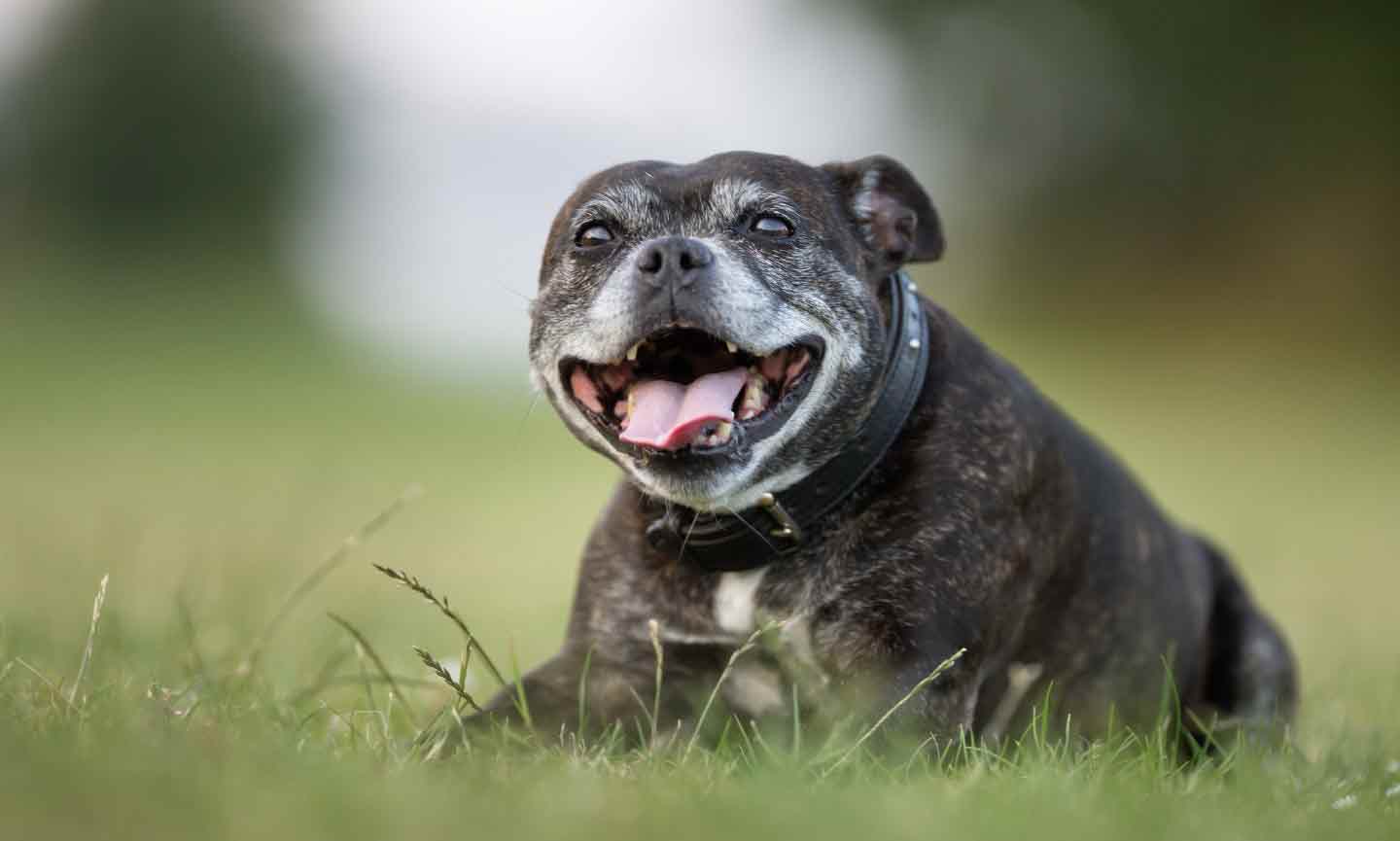
Dogs acquire heartworm disease through the bite of a mosquito that is infected with heartworms. This disease spreads from dog to dog, but only with the mosquito intermediary, and affects dogs of all ages, including senior dogs. While heartworm disease is more common in the deep south, California and Texas, it has been found in all 50 states.
Heartworm larvae, called microfilaria, live in the dog’s bloodstream. Those larvae grow up into adult heartworms who set up housekeeping in the lungs and heart. Heartworm disease can cause a mild, persistent cough, or it might not have any symptoms at all. Left untreated, heartworm can kill your dog.
Other Symptoms of Heartworm
Dogs with heartworm can show the following signs:
- Weight loss
- Decreased tolerance for exercise
- Labored breathing
- Swollen belly from right-sided heart failure
- Pale gums
When to Call Your Vet
If you suspect your dog is infected with heartworm, contact your vet immediately, as the condition is potentially life-threatening. Your vet will perform a blood test to confirm the diagnosis. Treatment involves potentially toxic drugs and a long, quiet recuperation as your dog’s body deals with disposing of the dead internal heartworms. Fortunately, there are excellent medications for heartworm that prevent heartworm disease—so if your dog isn’t on a heartworm preventative, now is the time to start!
4 Collapsed Trachea Coughing
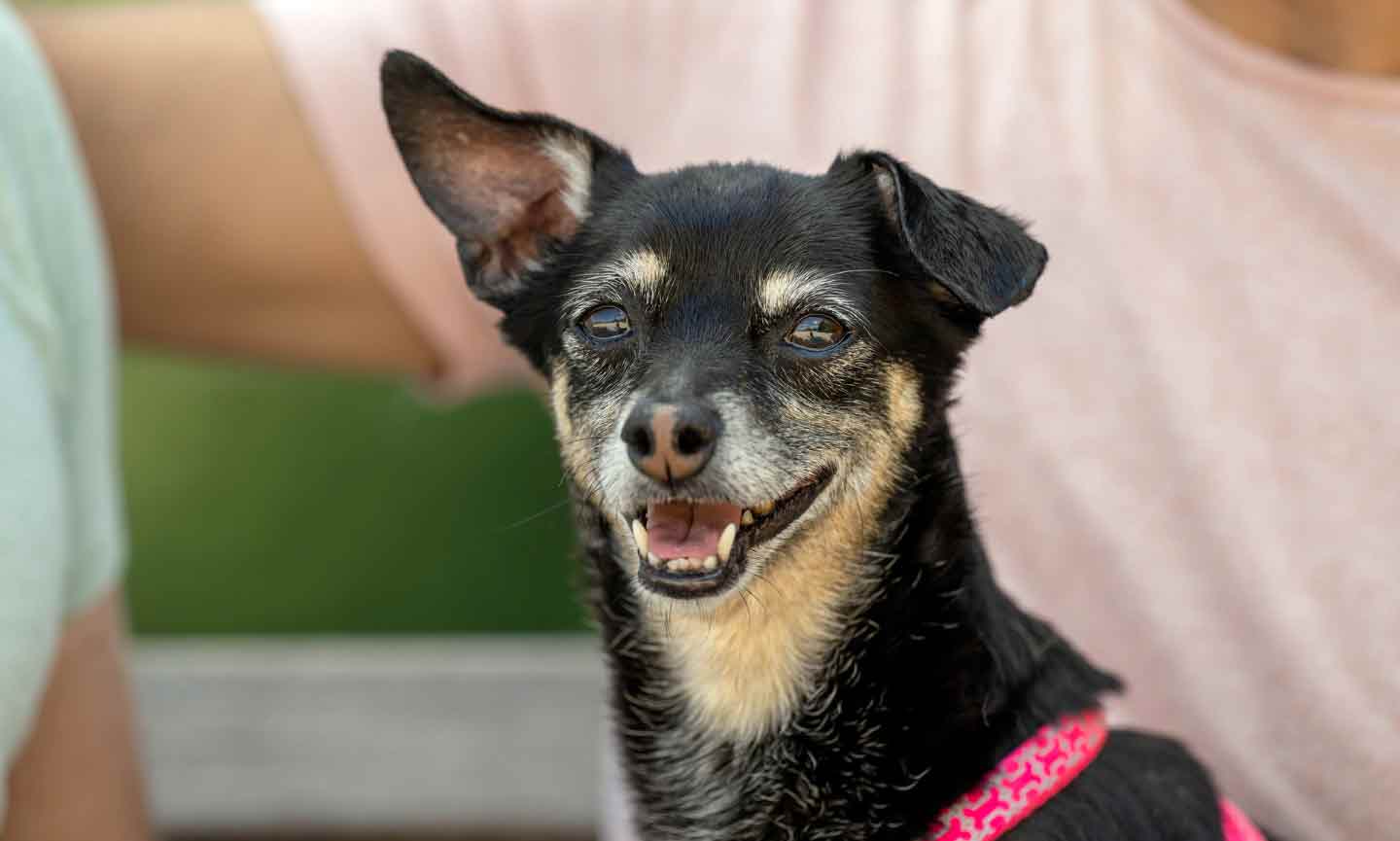
Some senior dogs may cough from a collapsed trachea—a condition where the cartilage of the trachea (aka the windpipe) is weak and collapses when the dog breathes. Tracheal collapse is more common in toy and small breed dogs like the Chihuahua and may be present from early on in life or progressively worsen over time. Obesity makes this problem worse. A collapsing trachea causes a honking, dry cough when a dog is excited or pulls on their leash.
Other Symptoms of Collapsed Trachea
- Gagging
- Excessive panting
- Exercise and heat intolerance
When to Call Your Vet
If you suspect your dog is suffering from a collapsed trachea, move your dog to a cool, calm environment immediately. If they are wearing a collar and leash, take it off.
Once your dog is calm, call your vet and make an appointment to be seen as soon as possible. Your vet can recommend medical and/or surgical options for treatment.
Another part of the care for this condition is the use of a dog harness in place of a collar, to prevent further trauma to the trachea. If the dog is overweight, weight loss can also help with this condition.
5 Coughs From Laryngeal Paralysis
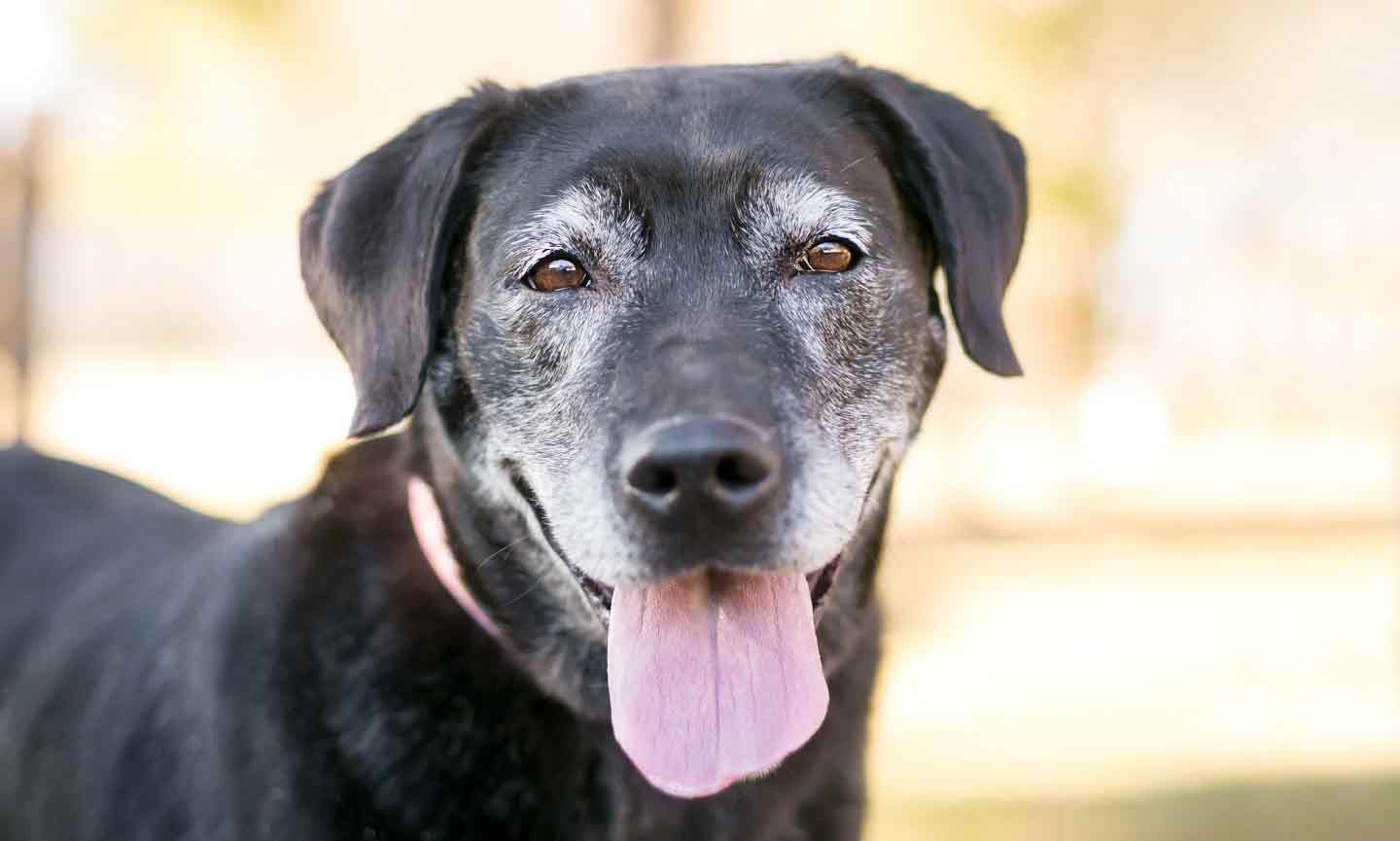
Laryngeal paralysis may also cause coughing in older dogs. This condition affects the nerves and muscles in the back of the throat that shut the larynx when your dog eats or drinks. When those muscles and nerves aren’t working well, the larynx doesn’t always close to a tight seal, leading your dog to inhale water or food into their windpipe. This could lead to aspiration pneumonia, which also causes coughing.
Older sporting dogs, especially Labrador Retrievers, are particularly prone to this problem. There are many theories for why dogs develop laryngeal paralysis. It may be associated with other aging problems of muscles and nerves, or related to trauma from collars earlier in life. Any direct trauma to the larynx could cause this condition.
Other Symptoms of Laryngeal Paralysis
Dogs suffering from laryngeal paralysis may also show these signs:
- Panting/loud breathing
- Gagging
- Decreased energy levels, especially in hot, humid weather
When to Call Your Vet
If you suspect your dog is suffering from laryngeal paralysis, call your vet and make an appointment to have your dog seen. There are surgical treatment options and some medical treatments that will help minor cases. Exercise and excitement should be limited in hot weather. Dogs with laryngeal paralysis also benefit from having air conditioning.
6 Coughing From Pneumonia
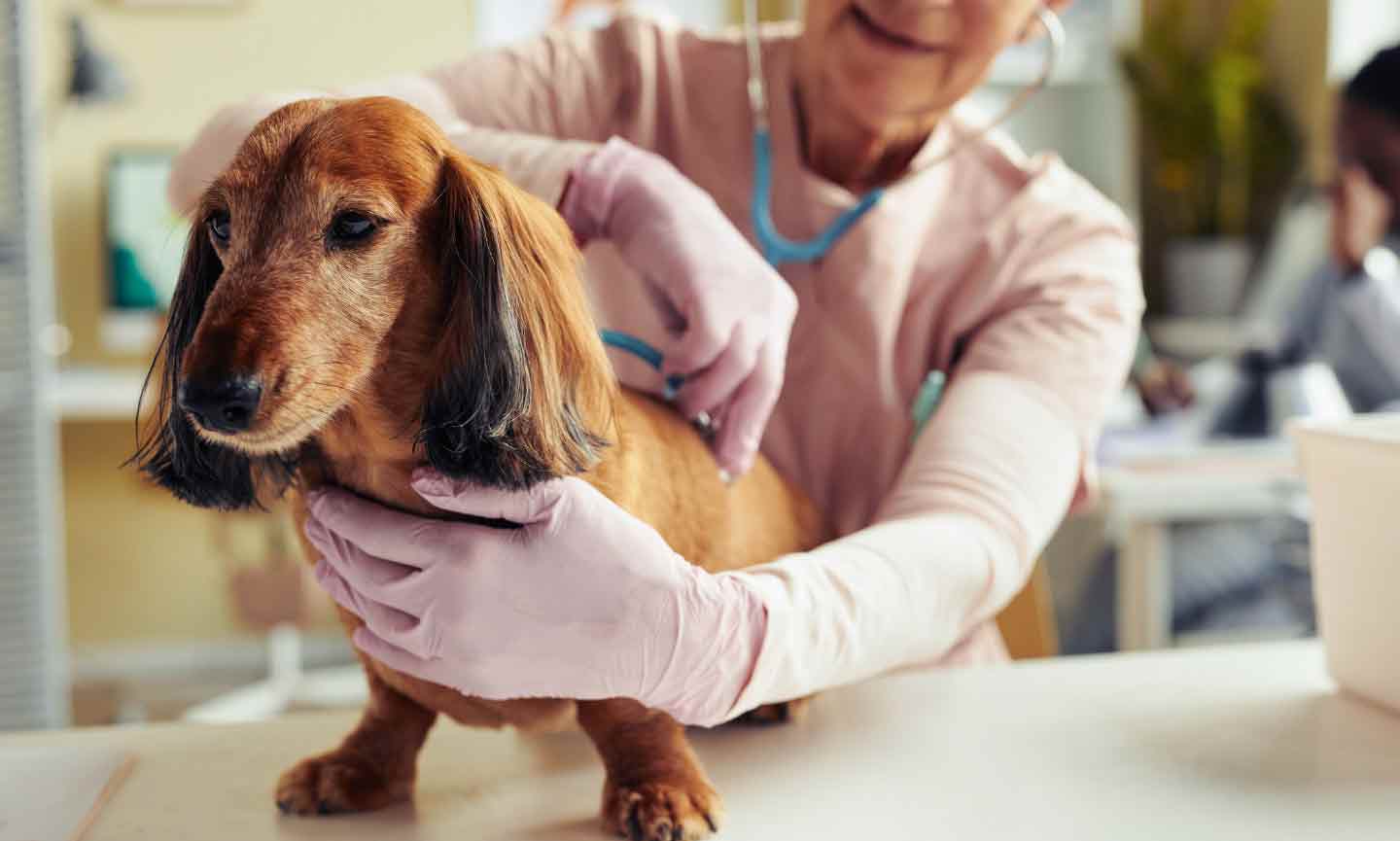
Bacterial, fungal and viral infections can hit dogs of any age, leading to pneumonia. Dogs with pneumonia tend to have a wet-sounding cough.
Other Signs of Pneumonia
- Fever
- Decreased energy
- Decreased appetite
- Coughing up discharge that’s thick and discolored
When to Call Your Vet
If you suspect your dog has pneumonia, call your vet and have your dog seen immediately. Diagnostics are important to find the “villain” behind the pneumonia, so treatment can be accurate and specific. Medical therapy, such as antibiotics, along with oxygen and fluids for severe cases is important. Your veterinarian may need to take radiographs (X-rays) to diagnose the pneumonia and do some bloodwork or tracheal washes and cultures.
7 Cancer Coughs
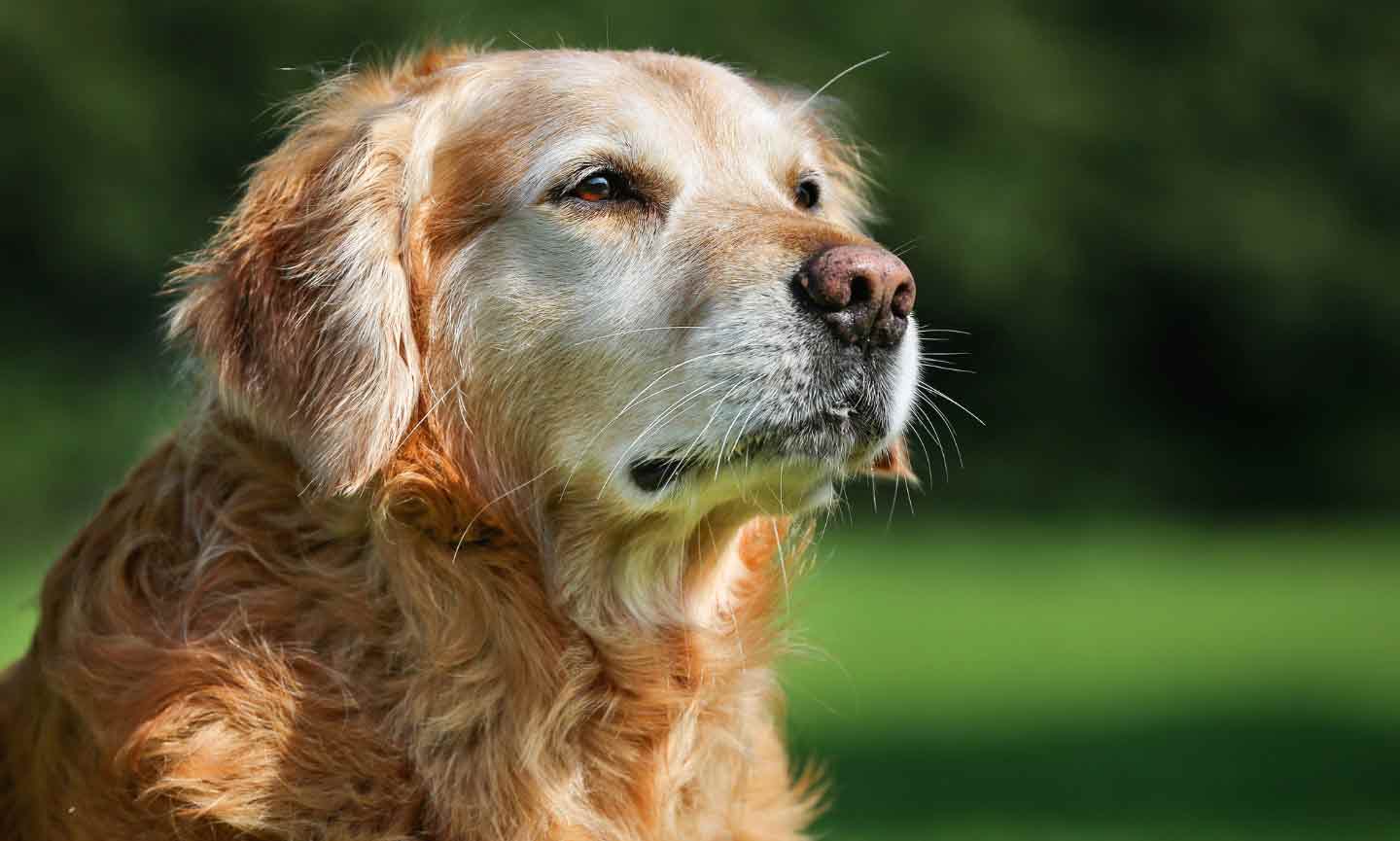
Cancer can cause a cough in an older dog. Primary lung cancer is quite rare in dogs, but is primarily seen in dogs exposed to environmental contaminants, such as secondhand cigarette smoke. If you smoke, consider quitting for your dog’s sake as well as your own.
In addition to primary lung cancer, the lungs are a frequent site for other cancers to spread or metastasize to. For example, a dog with bone or breast cancer may have cancer spreading to the lungs. Coughing is caused by excessive fluids in the lungs or a tumor pressing on an airway, and may worsen over time.
Other Signs of Cancer
- Weight loss
- Loss of appetite
- Unexplained swelling in belly
- Difficulty breathing
- Loss of energy
When to Call Your Vet
If you suspect your dog has cancer, call your vet and make an appointment to have your dog seen. Radiographs are the common way to diagnose cancer problems. Treatment will vary with the type of cancer.
8 Coughing Due to Heart Disease

One of the most common causes of coughing in old dogs is a heart problem. The exact type of heart problem will vary with the individual dog. Toy breeds and small dogs are prone to congestive heart failure and valve disease. Toy Poodles and Cavalier King Charles Spaniels tend to have heart problems in their old age.
Large and giant breed dogs are also prone to some heart problems, including cardiomyopathy, a disease of the heart muscle. Doberman Pinschers, Boxers and Old English Sheepdogs are breeds that may have issues with senior heart problems.
Coughs due to heart problems tend to occur more at night, or when your dog is lying down.
Other Symptoms for Cough Due to Heart Problems
There are often common features for a heart-related cough. These include:
- White or clear discharge from coughing
- A blueish tinge to the gums, rather than their normal pink
- Excessive panting/difficulty breathing
- Reduced activity levels
When to Call Your Vet
If you suspect your dog has a heart problem, call your vet and make an appointment to have your dog seen. If you are noticing blue gums or your dog is coughing and very lethargic, go to the vet the same day. For most heart problems, medical therapy is the ideal treatment. Just like people with heart problems, your dog may be put on a diuretic and a special diet and then medications to help the heart function more efficiently.
9 Bronchitis

Senior dogs who have had a chronic cough for more than two months may be suffering from chronic bronchitis due to chronic inflammation in the lungs. The cause of chronic bronchitis in senior dogs is difficult to determine, unless the dog is chronically exposed to secondhand smoke, has long term dental disease, is obese, has laryngeal paralysis, or has recurrent bacterial infections in their lungs. Dogs with bronchitis usually act otherwise normal, except for a dry, persistent cough that gets worse with excitement, exercise or irritation.
Other Signs of Bronchitis
- Expelling mucus when coughing
- Gagging
- Long-term coughing (over 2 months)
When to Call Your Vet
Bronchitis cannot be cured but can be managed with medication and lifestyle changes. If you suspect your dog is suffering from bronchitis, call your vet and make an appointment to have your dog seen.
Coughing and Gagging
Coughing in dogs that also causes gagging and spitting up is a common issue, and it’s more common with some diseases than others. The type of cough can help your veterinarian determine what is going on in your dog. In general, diseases that can cause coughing and gagging include:
- Kennel cough
- Bronchitis
- Laryngeal paralysis
- Collapsing trachea
- Lungworms or heartworms
How The Cause of Coughing is Diagnosed
Diagnosing your dog’s cough can be a multi-step process. Here’s how it works:
- Physical examination: Your vet will evaluate your dog’s heart and lung sounds with a stethoscope to check the heart rate and listen for any heart murmurs.
- Radiographs: Your vet may want to take radiographs to rule out lung disease and cancer.
- An electrocardiogram (EKC): This test gives your vet insight into how your dog’s heart is beating.
- Ultrasound: An ultrasound can evaluate the heart muscle and action.
- Blood work: Your veterinarian may also want to run blood work to check internal organ function in order to check your dog’s heartworm status.
As you can see, senior dog coughs can have many causes—and most of them are treatable once you have determined the exact cause. In general, you should consult your veterinarian with any concerns, and never give any cough medications (including human over-the-counter ones) until you have consulted your veterinarian.
Many causes of coughing in older dogs are preventable by vaccines. Find out what’s available for your pup.
Coughs and Colds
Share:



